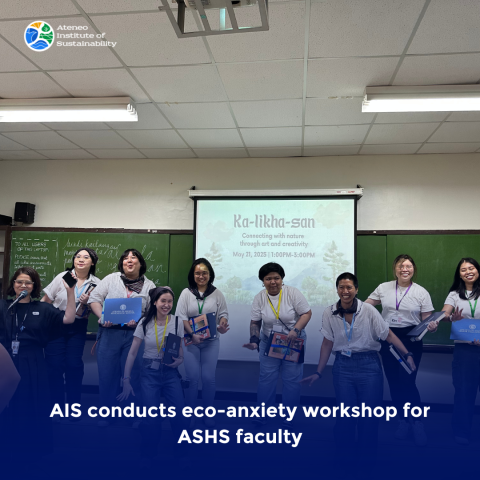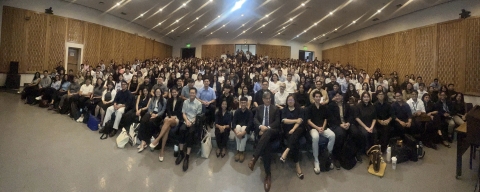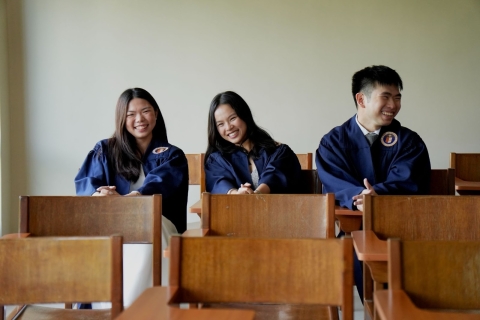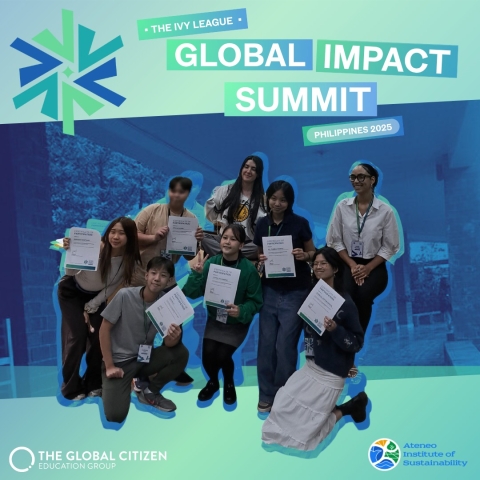MICROCASA Project Consortium advances micro-credentialing at technical workshop
12 Nov 2024 | Christian F Dasalla
QUEZON CITY, Philippines – As a continuation of the activities of the MICROCASA Project Consortium in the Philippines, the MICROCASA Project consortium members conducted a comprehensive technical workshop on the development and implementation of micro-credentials in Southeast Asia last 29 October 2024 at The Hive, Areté Ateneo. The event gathered international experts, stakeholders, and partners from Spain, Italy, Indonesia, Malaysia, and the Philippines to discuss evolving standards, technologies, and policy frameworks to support the recognition and adoption of micro-credentials in the Asia Pacific. Ateneo de Manila University, through the Institute of Philippine Culture-School of Social Sciences (IPC-SOSS) is a member of the 11-institution strong consortium of the MICROCASA project and is the host of the project activities in Manila during the month.
Global and Local Perspectives on Digital Credentials
Kicking off the first session, Dr Carlos Delgado Kloos and Dr Carlos Alario Hoyos of Universidad Carlos III de Madrid provided a comprehensive overview of digital badges and micro-credentials, highlighting three core elements of micro-credentials—short programs, digital credentials, and lifelong learning skills—alongside the dual purpose of micro-credentials, which encompass both the course itself and the credit earned. Quoting Andrew S Tanenbaum, he noted the "good thing about standards is that there are so many to choose from," illustrating the diversity of digital credentialing frameworks.
Through the discussion, two main families of formats for credential recognition were identified—1EdTech’s Open Badges and the European Commission’s ELM, EDC, and EBSI frameworks. Open Badges, developed by Concentric Sky, allow for portable digital badges that can include verifiable information, such as achievements or skills. Southeast Asian initiatives such as Inxignia, an open-badging project, and OpenLearning, which aims to provide flexible, recognized credentials to meet diverse workforce demands, were also put in the spotlight.
Delegates discussed how micro-credentials in the Philippines, for instance, have gained traction in technical and vocational education, with recent initiatives by TESDA (Technical Education and Skills Development Authority) providing pathways for credentialing. Additionally, the Commission on Higher Education (CHED) has crafted a policy framework, now undergoing public consultation, to standardize micro-credentials in higher education. In the overall landscape, other SEA countries have also made their strides in exploring micro-credentials with Indonesia's Universitas Sam Ratulangi (UNSRAT) developing an e-learning platform through WordPress with a vision to extend micro-credentials and Malaysia’s Universiti Sains Malaysia (USM) exploring a 40-hour stackable credit system to ensure microcredential courses are impactful and have currency in the job market.
Hands-On with Micro-credentials and its Future
One of the highlights of the Tuesday session was a hands-on workshop, led by Dr Achmad Husni Thamrin and Dr Andrey Ferriyan, on the issuance of badges and certificates through Inxignia, a digital credentialing platform. Inxignia is based on Open Badges 2.0 and adaptable to multiple LMS and aims to create a verifiable credential ecosystem. Participants were guided through issuing their own badges using the platform, receiving valuable feedback for further refinements. The workshop also explored decentralized identifiers and the potential for a verifiable credentials ecosystem to support long-term recognition of skills and achievements.
In a concluding session, Dr Aniello Merone of Università Europa di Roma emphasized the role of micro-credentials in fostering lifelong learning and bridging skills gaps. He urged institutions to consider a cohesive strategy that integrates micro-credentials into traditional degree programs, with the potential for stackable learning experiences that build towards larger qualifications. Dr. Merone stressed that micro-credentials should be seen not as alternatives but as complements to formal education.
With the technical workshop coming to a close, MICROCASA partners recognized the importance of developing interoperable, high-quality standards for micro-credentials that connect with both educational institutions and learners, renewing their commitment towards serving the Southeast Asian education sector. With 1 year left in its implementation, the MICROCASA Project hopes to provide concrete impact through frameworks that support cross-border credential recognition, a crucial step in empowering students and professionals in a digitally connected world and rigorous labor market.







